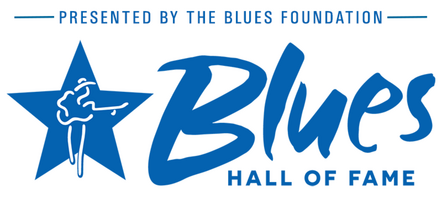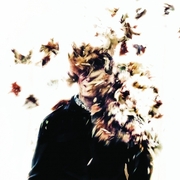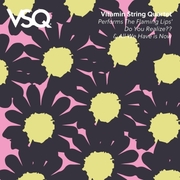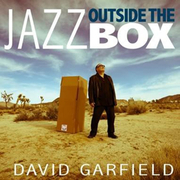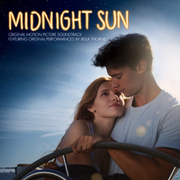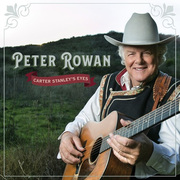New York, NY (Top40 Charts) On May 9, The Blues Foundation will celebrate the 39th class of Blues Hall of Fame inductees in a ceremony taking place at the Halloran Centre for the Performing Arts and Education in Memphis, Tennessee. This year, there will be 13 illustrious honorees, representing all five of the Hall of Fame's categories: Performers, Non-Performing Individuals, Classic of Blues Literature, Classic of Blues Recording (Song) and Classic of Blues Recording (Album).
The 2018 class of performers covers nearly a century of music making. The inductees include Mamie Smith, the 1920s singer who has been hailed as the first "Queen of the Blues," and Georgia Tom Dorsey, the blues pianist and songwriter who was Ma Rainey's accompanist in the 1920s and later Tampa Red's musical partner. The golden age of
Chicago blues is represented by renowned band The Aces (featuring Louis Myers, Dave Myers, and Fred Below) and the legendary drummer Sam Lay. The late Roebuck "Pops" Staples will be joining his daughter Mavis, a 2017 inductee, in the Blues Hall of Fame.
B.B. King's 1967 album Blues Is King is this year's Classic of Blues Recording Album entrant, while the five classic blues recordings feature Ma Rainey's "See See Rider Blues," Albert King's "Cross Cut Saw," Joe Turner's "Roll 'Em Pete," Booker T. & the MG's "Green Onions," and Bo Diddley's "I'm a Man," the B side to "Bo Diddley," which was inducted last year as a Classic of Blues Recording.
The year's honoree in the Non-Performer category is Al Benson, the disc jockey, promoter, and music entrepreneur who was the long-time powerbroker of the
Chicago blues scene. The 2018 pick for the Classic of Blues Literature is I Feel So Good: The Life and Times of Big Bill Broonzy, the authoritative 2011 biography written by Bob Riesman.
May 9's Hall of Fame Induction Ceremony will kick off at the Halloran Centre (225 South Main Street, Memphis) at 5:30 p.m. with a cocktail reception, which will be followed by formal inductions at 6:30 p.m. More music magic continues the next evening, May 10, when the Blues Foundation presents the 39th Annual Blues
Music Awards at Memphis' Cook Convention Center. Both events are open to the public and tickets are now on sale at THIS LINK. The Hall of Fame Induction Ceremony Tickets cost $75 per person; Blues
Music Award tickets are $150 per person.
As part of the Induction Ceremony, the Blues Hall of Fame Museum is securing special items representing each of the new inductees, and those artifacts will be installed and available for viewing beginning May 9.
Since opening in May, 2015, the Museum has been a treasure for both serious blues fans and casual visitors. Offering intriguing exhibits (including traveling exhibits that rotate in conjunction with major Blues Foundation events) and in-depth history, the museum educates and entertains visitors with all that is blues culture, while 10 individualized galleries feature interactive touchscreen displays along with three master databases where they can hear the music, watch videos, and read the stories about each of the Hall of Fame's over 400 inductees. Additionally, each gallery displays an array of cool items: album covers, photographs, historic awards, unique art, musical instruments, costumes, and other one-of-a-kind memorabilia such as R.L. Burnside's guitar, Koko Taylor's dress, Otis Spann's piano, Eddy Clearwater's Indian Headdress, and Charlie Musselwhite's harmonica.
The Blues Hall of Fame Museum was built through the generosity and support of blues fans so that it would serve all four components of the Blues Foundation's mission: preserving blues heritage, celebrating blues recording and performance, expanding awareness of the blues genre, and ensuring the future of the music. The Museum (421 S. Main St., Memphis) is open Monday-Saturday, 10 a.m.-5 p.m., and Sundays, 1 p.m.-5 p.m. Admission for adults is $10; students with ID are $8. Entry is free for children under 12 and for Blues Foundation members. To become a member, visit www.blues.org and click on Join Now, for as little as $25 per person.
ABOUT THE INDUCTEES:
Performers
Roebuck "Pops" Staples was the leader of Staples Singers, formed with his children Pervis, Cleotha, Mavis, and Yvonne. Known as "the first family of gospel music," the Staples were a rare gospel group that crossed over to fans of rock, blues, folk and soul. This was partly due to the universal appeal of songs like "Respect Yourself," partly to Mavis' powerhouse singing, and partly due to Pops' blues-style guitar playing. He grew up on Mississippi's famous Dockery plantation, the long-time home of Charley Patton. Patton and Howlin' Wolf (who frequently performed in the area) inspired Pops to learn the guitar and their influence permeated Pops' "gospel" guitar work. He won the Grammy's Contemporary Blues honors in 1994 for his final CD, Father Father.
Sam Lay is a drummer's drummer. His career stretches back 60 years, and even now, in his early 80s, he still takes the stage on occasion. Lay's resume reads like an all-star lineup of blues giants:
Little Walter, Howlin' Wolf,
James Cotton, Muddy Waters, Magic Sam, Lightnin' Hopkins, and the list goes on. A 2015 Rock and Roll Hall of Fame inductee as part of the Paul Butterfield Blues Band, Lay accompanied
Bob Dylan at the 1965 Newport Folk Festival and on one Highway 61 Revisited studio session. The Chicago-based Lay also was a founding member of the fabled Paul Butterfield Blues Band, with three other members (Butterfield, Mike Bloomfield and Elvin Bishop) previously inducted into the Blues Hall of Fame. Lay attributes his signature double-shuffle drumming style to the double-time rhythms he heard in church growing up in Birmingham, Alabama.
Mamie Smith earned her place in music history with her recording of "Crazy Blues," which caused a sensation in 1920. Its success, coupled with her extravagant stage shows, brought her fans across racial lines, which was a huge rarity in those days. A trailblazer, Smith spread the popularity of blues and gave it commercial legitimacy. She also was a pioneering artist in the so-called "race record" market. Smith continued her success through the '20s and, after some lean years in the '30s, found a brief second career in film during the early '40s before her death in 1946. Her final years were shrouded in mystery; she was buried without a headstone, which was rectified a few years ago through the efforts of blues journalist Michael Cala.
Georgia Tom Dorsey was born
Thomas A. Dorsey in 1899 in Georgia. He first earned the nickname "Barrelhouse Tom" as a teen playing piano in Atlanta. Moving to Chicago, he joined Ma Rainey's band in the 1920s. Dorsey also began writing songs, penning some of the most humorous and risqué tunes of the '20s and early '30s. He formed a successful duo with Tampa Red from 1928 to 1932, and it was then that he started calling himself "Georgia Tom." Dorsey subsequently devoted his career to gospel music. He wrote two of gospel music's most famous songs, "Precious Lord" and "Peace in the Valley," and become known as "The Father of Gospel Music."
The Aces were a crucial band in the
Chicago blues music scene. The core members were brothers Louis and Dave Myers and their longtime friend Fred Below. Louis played guitar, Dave played bass and Below was the drummer. They first rose to prominence backing
Little Walter, forming one of the most exciting blues combos of the early '50s. While the Aces were only a unit together for a few years, the Myers brothers and Below all enjoyed lengthy careers as musicians. Their long list of credits include working with Jimmy Reed,
Sonny Boy Williamson, Howlin' Wolf, Muddy Waters, Otis Rush, John Lee Hooker, Louis Jordan, and Koko Taylor. Below was a major influence on Sam Lay and their inductions this year mark the first two
Chicago drummers to become part of the Blues Hall of Fame.
Individuals: Business, Production, Media or Academic
Al Benson, whose legal name was Arthur Leaner, was a famous (and sometimes infamous) figure during the heyday of
Chicago blues from the late '40s through the early '60s, parlaying his popularity as a DJ into running a number of other lucrative businesses in Chicago's black music scene. His fame was so great that both Duke Ellington and Lionel Hampton paid tribute to him in song. Benson's empire includes a broadcasting studio in his home, a television show, record shops, a nightclub, concert promotion and record labels. Benson's labels released recordings by Albert King, Snooky Pryor, T-Bone Walker, J.B. Lenoir, Sunnyland Slim, and Magic Sam. He also was active in the Civil Rights movement.
Classic of Blues Literature
I Feel So Good: The Life and Times of Big Bill Broonzy, by Bob Riesman, has earned a place as one of the most definitive blues biographies since it was published in 2011 by University of
Chicago Press. To get the full story on Big Bill, music journalist and blues historian Reisman followed a trail from
Chicago to Holland to a church in Arkansas and to a meeting with Broonzy's grandnieces. Reisman reveals how Broonzy (born Lee Conley Bradley) reinvented himself in name, birthdate and birthplace, along with many other details of his life. The book explores Broonzy's career as a premier blues artist, influence, mentor, and spokesman in the U.S. and abroad. Broonzy becomes the first artist to be the subject of two books in the Blues Hall of Fame; the 1955 autobiography Big Bill Blues was inducted in 1990.
Classic of Blues Recording (Album)
B.B. King: Blues Is King becomes the third B.B. King album selected for the Blues Hall of Fame, joining Live at the Regal and Live in Cook County Jail. All three were recorded live in
Chicago for the ABC label group. This album captures him performing with his band (Bobby Forte, Duke Jethro,
Sonny Freeman, Kenneth Sands and Louis Satterfield) at The Club on November 5, 1966 and at the Burning Spear on November 17. The 1967 release was the first one put out on ABC's BluesWay imprint. While Blues Is King didn't achieve the initial acclaim of the prior ABC albums, it is now seen as one of King's best. One reviewer describes King's performance on this album as "both cathartic and awe-inspiring."
Classics of Blues Recording: Singles
"See See Rider Blues" by Ma Rainey is the original rendition of a song that has now become a standard. Versions of the song (sometimes titled "C.C. Rider") have found success with Chuck Willis, LaVern Baker,
Bobby Powell, the Animals, and Mitch Ryder & the
Detroit Wheels. Rainey's rendition gives a low-moaning rendition that really highlights her title as the "Mother of the Blues. Released in 1924 as the B-side of a Paramount single "Jealous Hearted Blues," this recording features Rainey's Georgia Jazz Band, which on this occasion starred Louis Armstrong on cornet,
Fletcher Henderson on piano, Charlie Dixon on banjo, and horn men Buster Bailey and Charlie Green.
"I'm a Man" by Bo Diddley was released on the Checker label in 1955 as the flip side to his eponymous "Bo Diddley," which was selected as a Blues Hall of Fame classic in 2017. Both sides of this single won over listeners. In fact, "I'm a Man" charted higher, according to Cash Box, in several Southern markets, including Memphis. Diddley recorded this song before "Bo Diddley," using a crack band featuring Billy Boy Arnold, Otis Spann,
Jerome Arnold, Willie Dixon and Clifton James.
"Roll 'Em Pete" by Joe Turner amazingly was the first studio recording showcasing Turner's powerful vocals and Pete Johnson's rollicking boogie-woogie piano. Released by Vocalion, this now-classic track was recorded just a week after the two appeared at the landmark 1938 "From Spirituals to Swing" concert at Carnegie Hall. Some years later, Turner proclaimed that rock 'n' roll was nothing more than the boogie woogie and blues he and Johnson trademarked in Kansas City. Listen to this exuberant tune and you can hear that there isn't much of a leap to a rock 'n' roll standard like Jerry Lee Lewis' "Great Balls of Fire."
"Green Onions" by Booker T. & the MG's ranks as one of the top instrumentals in the rock, R&B and pop worlds. It reached #3 on the pop charts and #1 on the R&B charts. At its essence, however, this iconic 1962 tune was built around a 12-bar blues groove. The recording was done at Memphis' Stax Studio by some of their best session musicians: Booker T. Jones, Steve Cropper, Lewie Steinberg and Al Jackson. While neither the tune nor the band had a name when they recorded it, when the 45 came out on Stax's Volt subsidiary and subsequently on the hit Stax re-pressing, it was dubbed "Green Onions" by Booker T. & the MG's.
"Cross Cut Saw" by Albert King comes with a long, rather convoluted, history. It was recorded in 1941 by both Tommy McClennan and Tony Hollins; however, it was earlier claimed by Lucious Curtis, a bluesman who also recorded some songs for John Lomax and the Library of Congress in Natchez, Mississippi, in 1940. Curtis held on to this one thinking it would be a hit, which it turned out to be in the hands of Albert King around 25 years later for Stax Records. There are several accounts on how the song got to King. He credits fellow Stax artist
William Bell, who in turn credits Al Jackson (of Booker T & the MG's). However it got into King's hands, he transformed the song into what one writer declared "one of the necessary pieces of modern blues."
For complete bios on each of the 2018 inductees, please visit https://www.blues.org/2018-blues-hall-of-fame-inductees-press-release.
About the Blues Foundation: This world-renowned, Memphis-based organization holds a mission to preserve blues heritage, celebrate blues recording and performance, expand worldwide awareness of the blues, and ensure the future of this uniquely American art form. Founded in 1980, the Blues Foundation has more than 4,000 individual members and close to 200 affiliated blues societies representing another 50,000 fans and professionals around the world. Its signature honors and events — the Blues
Music Awards, International Blues Challenge, and Keeping the Blues Alive Awards — make it the international hub of blues music. Its HART Fund provides the blues community with medical assistance for musicians in need, while Blues in the Schools programs and Generation Blues Scholarships expose new generations to blues music. Throughout the year, the Foundation staff serves the global blues community with answers, information, and news.














